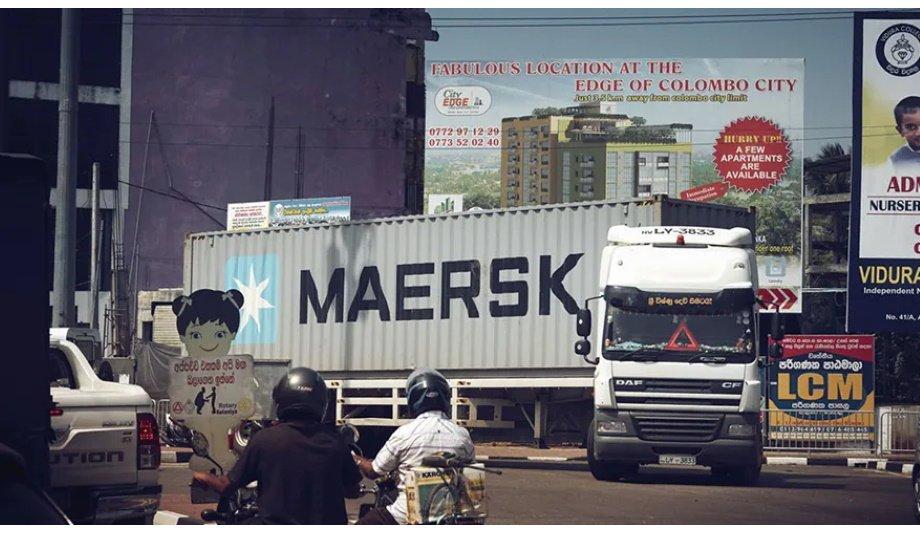One of the key lessons learnt during the COVID-19 pandemic and its aftermath, is that there is a need for increased resilience in supply chains. A survey conducted by the Business Continuity Institute showed that of the 526 responders across 64 countries, 34% of organisations reported an increased annual cost of €1 million or above, caused by supply chain disruptions.
Ever-changing challenges make it difficult and expensive for customers to have a global setup that is capable of monitoring possible global and regional risks to cargo movements. It’s understandable that many customers have and continue to prioritise resilience, when planning their supply chains. A.P. Moller - Maersk (Maersk) have developed the Supply Chain Resilience Model to assist our customers in this matter; a tool that helps shore up resilience in supply chains, landside.
Supply Chain Resilience Model (SCRM)
The Supply Chain Resilience Model (SCRM) is built on an analysis of customer needs
Developed to help customers reduce their supply chain risks and mitigate disruptive impacts, the Supply Chain Resilience Model (SCRM) is built on an analysis of customer needs, which pertain to service reliability, met through pre-planned procedures, and structures.
The model offers customers reliable services for cargo managed and/or transported landside by Maersk, despite disruptive circumstances. By working closely with the customer to map their supply chain, Maersk identifies critical processes and suppliers, as well as key dependencies in the supply chain.
This informs the risk identification and evaluation process, allowing for a structured view of factors that could lead to disruptions in the landside aspects of supply chains, and guide on how to mitigate them.
Maersk offers cohesive solutions
As the globally renowned integrated logistics partner, A.P. Moller - Maersk offers cohesive solutions, which is why the SCRM is a useful asset to the customers. Through Maersk, the customers can access multiple flows to market, import and export services, ware-housing, and customs assistance.
Additionally, as Maersk is present in so many aspects of the supply chain, they are uniquely positioned to help make their customers’ logistical experience more seamless. Their operational hubs mean they can absorb delays in ways others can’t, something that allows them to continue to create value-adding logistical solutions for customers.
I think this is definitively super valuable to offer to customers, especially in the current context"
Johanna Hainz, the Global Head of Retail Vertical at A.P. Moller – Maersk, said “I think this is definitively super valuable to offer to customers, especially in the current context, where continuously new disruptions and challenges in different origins, or destinations occur, and require the customers to act. Resilience is the word of the day and will remain like this for the foreseeable future, I believe.”
Benefits of SCRM to businesses
The SCRM is beneficial in a multitude of ways, but there are three key ways, in which it is a very beneficial addition to all companies.
- Dedicated support in disruption handling
When disruptions occur, Maersk’s dedicated Customer Incident Coordination team, consisting of local and global Maersk logistics experts in resilience, assess the situation and its impact, and advise on how to manage the crisis in a structured way, using Maersk incident handling tools.
- Reduction of risks to customers’ supply chain
One of the key values of the SCRM is that risks to customer’s supply chains are identified ahead of time and mitigating steps to counteract these risks, are created.
To ensure the risk evaluation is relevant and reliable, Maersk consults risk assessment results from several risk consultancy companies, as well as work with the company’s area experts on safety, security, IT and supply chain management, giving customers a clear overview of global and country specific risks.
- Alternative solutions to keep the supply chain moving
When seeking out alternatives, Maersk takes an impact-based approach, looking at each alternative with the expectation of a business continuity objective, while measuring resilience performance. The intention is to reduce the uncertainties in the disruption, through forward thinking and pre-aligned processes.
One of the advantages that Maersk offers customers is their alternative solution offerings
One of the advantages that Maersk offers customers is their alternative solution offerings. Using the company’s strong networking and integrated transport capability, Maersk offers customers more backup solutions. The customers’ supply chain is protected by ‘multiple layers of safety nets’, allowing for increased flexibility and speed, in order to keep the supply chain moving.
Stepping forward with the SCRM
While the company knows that there are situations that can’t be controlled fully, Maersk prides itself on constantly working to create products that offer customers options, in the face of adversity.
As the trusted integrated logistics partner, Maersk believes their Supply Chain Resilience Model will benefit customers, by offering a product that supports them throughout the entirety of a supply chain disruption, before, during and after.
